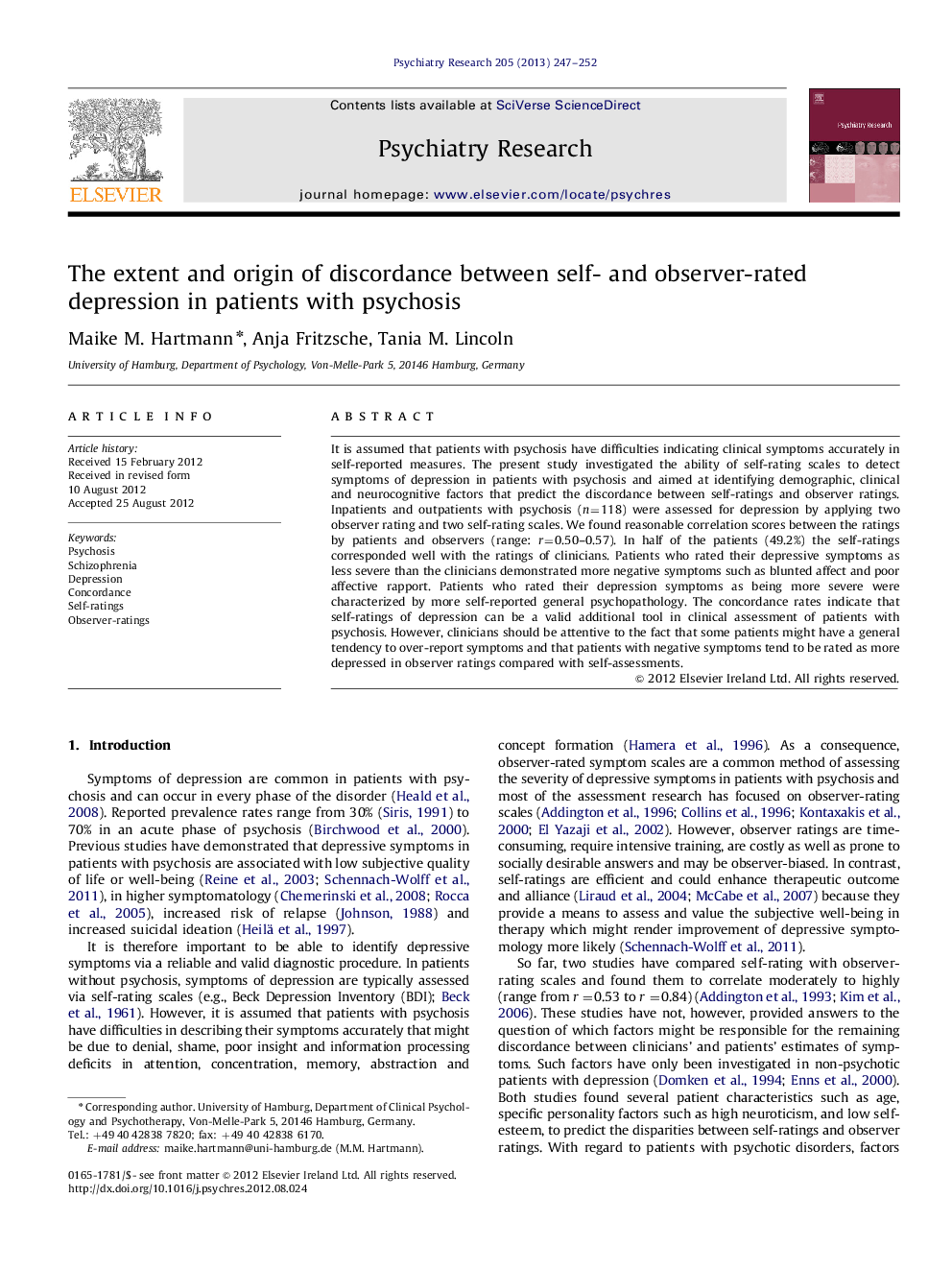| Article ID | Journal | Published Year | Pages | File Type |
|---|---|---|---|---|
| 10304970 | Psychiatry Research | 2013 | 6 Pages |
Abstract
It is assumed that patients with psychosis have difficulties indicating clinical symptoms accurately in self-reported measures. The present study investigated the ability of self-rating scales to detect symptoms of depression in patients with psychosis and aimed at identifying demographic, clinical and neurocognitive factors that predict the discordance between self-ratings and observer ratings. Inpatients and outpatients with psychosis (n=118) were assessed for depression by applying two observer rating and two self-rating scales. We found reasonable correlation scores between the ratings by patients and observers (range: r=0.50-0.57). In half of the patients (49.2%) the self-ratings corresponded well with the ratings of clinicians. Patients who rated their depressive symptoms as less severe than the clinicians demonstrated more negative symptoms such as blunted affect and poor affective rapport. Patients who rated their depression symptoms as being more severe were characterized by more self-reported general psychopathology. The concordance rates indicate that self-ratings of depression can be a valid additional tool in clinical assessment of patients with psychosis. However, clinicians should be attentive to the fact that some patients might have a general tendency to over-report symptoms and that patients with negative symptoms tend to be rated as more depressed in observer ratings compared with self-assessments.
Related Topics
Life Sciences
Neuroscience
Biological Psychiatry
Authors
Maike M. Hartmann, Anja Fritzsche, Tania M. Lincoln,
